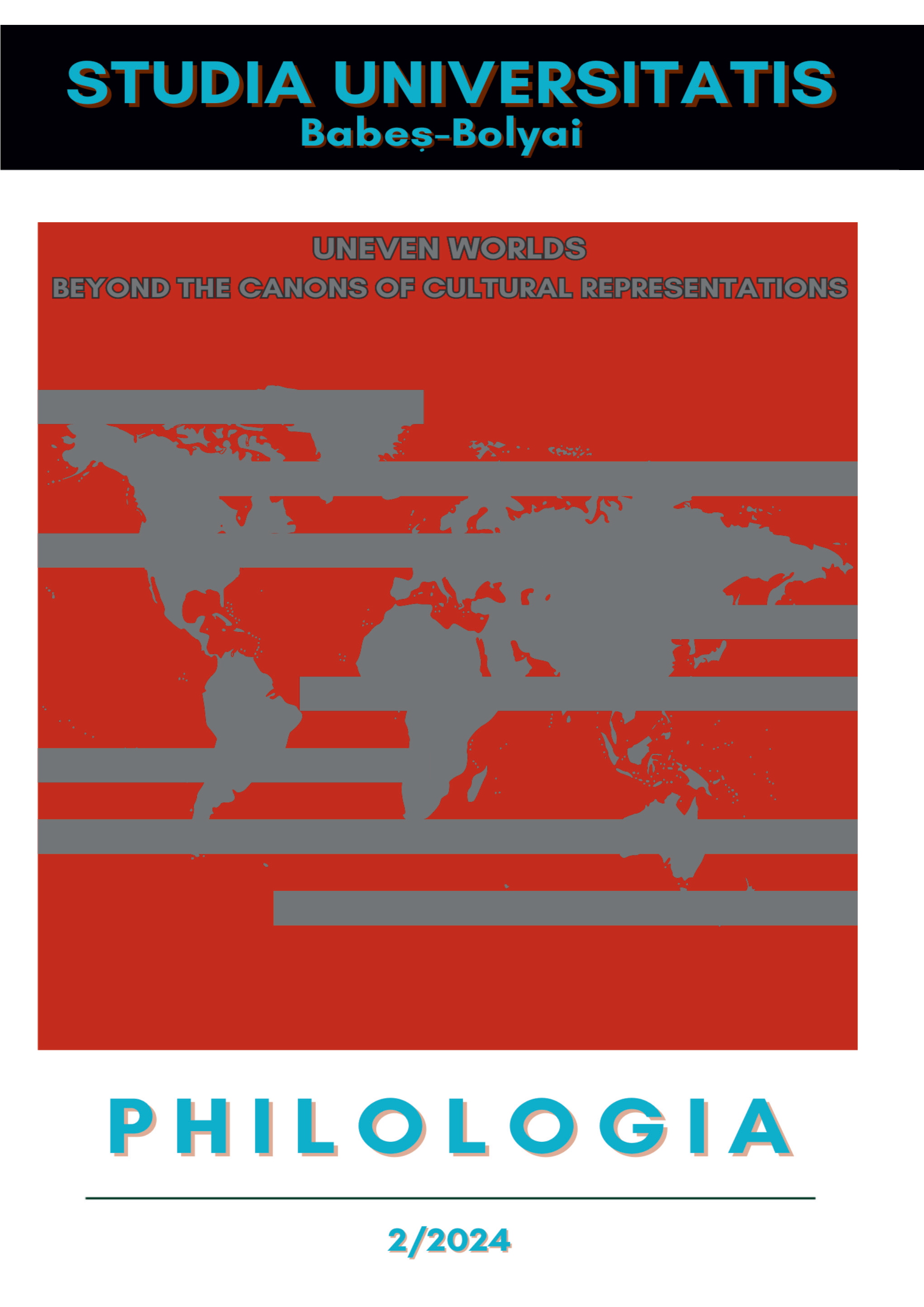INTRODUCTION
Abstract
In the context of capitalist globalisation and time-space compression (as defined by David Harvey), several socio-spatial theorists have analysed the relationship between the local and the global, as well as how certain regional representations are the product of cultural interferences and hybridisations. From this point of view, our special issue, Uneven Worlds. Beyond the Canons of Cultural Representations, investigates the role played by regional and (semi-)peripheral cultures within world-systems and geographies of uneven development, and explores how they resist the false homogenisation implied by globalisation. Whether or not we are drawn to global fictions that have emerged from postcolonial literary studies and have employed tropes such as “hybridity, diaspora, transculturation, subaltern, hegemony, deterritorialisation, rhizome, mestizo, Eurocentrism and othering” (O’Brien and Szeman 2001, 605), in relation to world literature or to the “one, and unequal” world-literary system (Moretti 2004, WReC), a certain reminiscence of the Iron Curtain, an impossible translation, and a lack of porosity characterise the circulation of peripheral literatures towards the centre. While writers such as Abdulrazak Gurnah, Shehan Karunatilaka and Mohamed Mbougar Sarr are recuperated in the central circuit of the Nobel, Booker and Goncourt prizes, but still living and producing in the centre, we chose to explore the mechanisms of resistance, the impossibility of translation and the subversive strategies of “cultural management” that export various models of the periphery.
References
BRAGA, Corin. “Anarchetype: Reading Aesthetic Form after ‘Structure’”, in Alexandru Matei, Christian Moraru, and Andrei Terian (eds.), Theory in the “Post” Era. A Vocabulary for the 21st-Century Conceptual Commons. New York: Bloomsbury, 2022, pp. 121-139.
O’BRIEN, Susie, and Imre Szeman. “Introduction: The Globalization of Fiction/The Fiction of Globalization”, South Atlantic Quarterly 100 (3): 603-626, 2001.
WReC (Warwick Research Collective). “World-Literature in the Context of Combined and Uneven Development”, “The Question of Peripheral Realism”, in Combined and Uneven Development. Towards a New Theory of World-Literature. Liverpool University Press, 2015.
Downloads
Published
How to Cite
Issue
Section
License
Copyright (c) 2024 Studia Universitatis Babeș-Bolyai Philologia

This work is licensed under a Creative Commons Attribution-NonCommercial-NoDerivatives 4.0 International License.





 ©Studia Universitatis Babeş-Bolyai Philologia. Published by Babeș-Bolyai University.
©Studia Universitatis Babeş-Bolyai Philologia. Published by Babeș-Bolyai University.